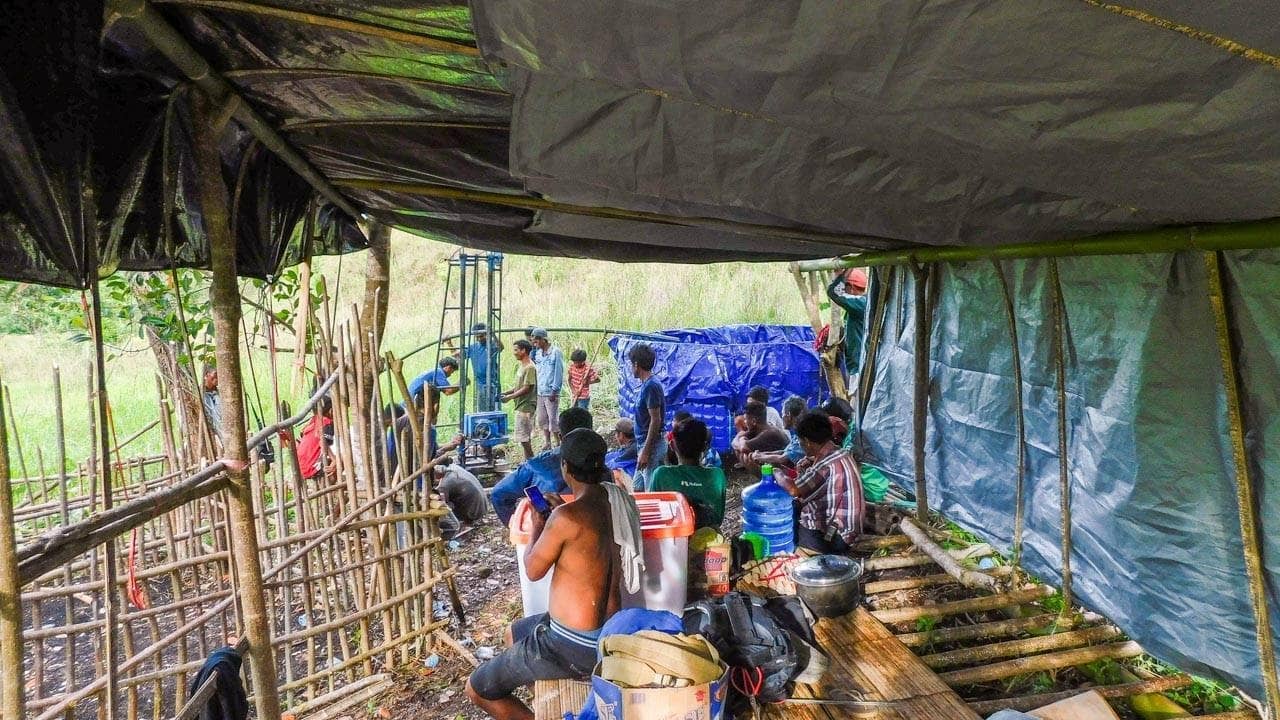Fr. Eduardo Emilio Aguero, SCJ
25th Sunday in Ordinary Time (A)
Not so long ago, the pandemic had plunged Macau into a long slumber. The streets were almost empty, and many businesses were forced to close. It seems that this sad image of our city is now forever in the past. Now there is work, a fundamental value for the resumption of family and social life. Many companies and shops reopened and people of various nationalities returned to Macau to work again. Honest people want to earn a decent living for themselves and their families. Work dignifies them and through work they contribute to the growth and development of our community.
Some early mornings I had to travel to Coloane on bus 52 to celebrate Mass. At that time, the bus was packed with construction workers. I saw them get off at Cotai where there is a big construction going on. I have seen them go back on the same bus some evenings, tired and even exhausted, but I know there is a sense of dignity in them because, as St. John Paul II taught us, “Work is a good thing for man – a good thing for his humanity – because through work man not only transforms nature, adapting it to his own needs, but he also achieves fulfilment as a human being and indeed, in a sense, becomes ‘more a human being’” (John Paul II, Laborem Exercens No. 9).
In Jesus’ time, many peasants had been left without land due to the heavy taxes they were forced to pay the Romans and the Temple authorities. So many dispossessed farmers had to depend on their manual work and on some landowner to hire them for a fair wage. Because this is a parable of the kingdom of heaven, we need to understand its logic from God’s perspective: work, the vine, the landowner, the hirelings and their wages need to be seen in a new way to grasp Jesus’ teaching.
The landowner of Jesus’ parable hires people from dawn to the eleventh hour and sends them to his vineyard. Having agreed on the usual wage with the first batch of workers and told the others that he will give them what is fair, he gave them all the same amount of money. Jesus’ audience, and I guess most of us too, would think that the complaint of those who worked the whole day made some sense – “These last ones worked only one hour, and you have made them equal to us, who bore the day´s burden and the heat” (Mt 20:12).
In the background of this parable, we have to see the new Christian communities composed by many Gentile converts and some Jewish Christians who thought they had a bigger share of God’s reward and gifts than the newcomers. They may still have had the Pharisee attitude of pretending to gain God’s salvation on their own merit because of their “work,” that is, the fulfillment of all the prescriptions of the Law.
If we talk about labor we do in our workplace or at home, it is right to expect a reward that is proportional to the kind of work we have done and the length of time we have toiled. A student who has studied hard to pass their exam, is expected to earn a good grade. But here is where Jesus’ parable takes a different course.
In the vineyard of the Lord, what counts is not the kind of work we do, how long we work, or how good is the outcome of our efforts. Jesus tells us that the landowner is misunderstood by the first batch of workers because of his kindness and generosity: he invites and welcomes those who are idle, waiting almost helplessly till the eleventh hour for someone to hire them. What really matters is not what we do, but WHAT GOD DOES IN US: He invites us to participate in his work of salvation, and by doing our simple daily work with gratitude in our hearts, without complaining or grumbling like those laborers (Mt 20:11), we allow Him to work in us, to transform us with His love. He also wants to work through us as He told His disciples “you will do even greater works” (Jn 14:12). He commands us to continue His work of love “Do this in memory of me”, meaning the offering of our lives with Him to the Father, with the power of the Spirit, for the sake of all men and women. Our Lady also encourages us in this: “Do whatever he tells you” (Jn 2:5); this is our sacramental life. We, the Church of Christ, are a Sacrament of His love.
God always invites us to share in His work, but He will never force us. He deeply respects our freedom. This is our main work: to believe in Him and live according to His word, that is, to freely accept His invitation and cooperate with His Sanctifying Grace. He will do the rest.
How beautiful it is to see our communities welcome the new catechumens each year! How generous the work of our catechists who prepare them for baptism! Yet, they know well that the Lord is also blessing and sanctifying them in that very work they do for Him and His children.
I rejoice when I see whole families coming together to mass to offer their joys and their sorrows on the altar of the Eucharist. Yes, they are confident that “He who began good work in [them] will carry it on to completion until the day of Christ Jesus” (Philippians 1:6).


 Follow
Follow


